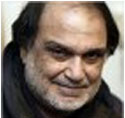
By Khaled Ahmed
April 9, 2016
Pakistani ex-ambassador Touqir Hussain writes in The Diplomat, on March 16, about Pakistan-US relations: “Pakistan should shed its belief that the United States cannot walk away from the bilateral relationship; the United States should abandon the notion that Pakistan cannot survive without US help or that cutting off aid will beat Pakistan into submission. The fact is that Pakistan would rather forgo aid than do something against its national interest.”
Hussain makes two assumptions: One, the American interest in Pakistan is not permanent and will somehow shift away from it to punish it; and two, Pakistan has a fixed national interest and will endure the hardship of America’s “walking away” rather than give up or modify that national interest. In one case, the party has a national interest subject to the flexibility of response; in the other, it is unchanging.
There is, of course, the assumption that one party — the US — has the capacity to punish; and the other — Pakistan — has, instead, the capacity to endure pain. Clearly, in this unequal relationship, America has more options than Pakistan, although it’s the weaker party that should ideally work with more options. Hussain’s statement, therefore, sounds like a threat of the weak, unrealistically delivered to the strong. The question is: If the pain is clearly to be suffered by Pakistan, why doesn’t it develop flexibility vis-à-vis its national interest? Hussain knows that the punishment for the sake of national interest will not be borne by Pakistan’s rulers but the long-suffering Pakistani population.
Interestingly, Shahid Javed Burki, a former caretaker finance minister of Pakistan and a former vice president at the World Bank, had written only three days earlier in The Express Tribune: “National interest and public welfare are not always overlapping objectives. The pursuit of one can do a tremendous amount of damage to the other. This is the main lesson we should draw from the history of the exceptionally bloody contests witnessed in the first half of the 20th century. We are seeing this again in the beginning decades of the present century, as the rise of religious extremism continues to take a heavy human and economic toll in many parts of the world. Promoting human welfare over national interest, therefore, must be the most important objective policymakers must pursue.” Burki was leaning on a theory earlier propounded by economics Nobel laureate John Nash.
Some political scientists, sworn to pragmatism, think “national interest” is a bit of a fraud. The only objective of the state should be survival: The strong will dictate; the weak will be flexible. If you are living in a tribal society, the strong will tend to be stupid and the weak cleverer. All nations presume their state is sovereign; in other words, strong enough to at least resist coercion. But the truth is that some nations may be weak rather than strong.
What should be the national interest of weak states? Contrary to what the nation thinks, it should be the following: Not be harmed by the power projection of states it cannot oppose or resist; to seek alliances that may break the isolation enabling the enemy state to successfully harm it; to attain the ability to achieve internal reform in order to avoid foreign pressure of all sorts; to avoid international isolation to prevent other states from getting together at the UN to use international law to harm it. It should be clear that under the UN system, there’s no executive mechanism except the vote at the Security Council, which simply requires a state to avoid isolation to avert punishment.
Earlier in March, Pakistan’s ex-ambassador to Afghanistan, Rustam Shah Mohmand, recommended a policy that appeared to suit Pakistan’s interest but, alas, not Pakistan’s “national interest”. He was talking about Pakistan’s denial of the land route for trade between Afghanistan and India. Writing in The Express Tribune, he stated: “[Pakistan’s] India-centric approach is fundamentally a negativist concept seeking to restrict India’s role in Afghanistan. Despite Pakistan’s many overtures and deep contacts with Kabul, the bilateral Afghan-India relations have continued to grow. More importantly, India is viewed by most Afghans as a friend and ally.”
Political scientists lose their cool over the theory of a fixed national interest. States have interests that remain fluid, forcing pragmatism on them for safeguarding the well-being of the common man. But nations, drunk on nationalism, may impose a self-damaging permanent national interest and thus hurt the masses.
One man in South Asia who prophetically hated nationalism was Rabindranath Tagore, who won his Nobel when Europe was steeped in nationalism, fighting wars that killed millions of its people. But one has to make a concession to reality and accept that the region in which we live cannot yet mutate from nation-states to market-states that trade with each ot-her rather than go to war periodically, maintaining armies rather than looking after the poor.
Source: indianexpress.com/article/opinion/columns/pakistan-us-relations-pak-national-interest-afghanistan-india-trade-route/99/print/

No comments:
Post a Comment